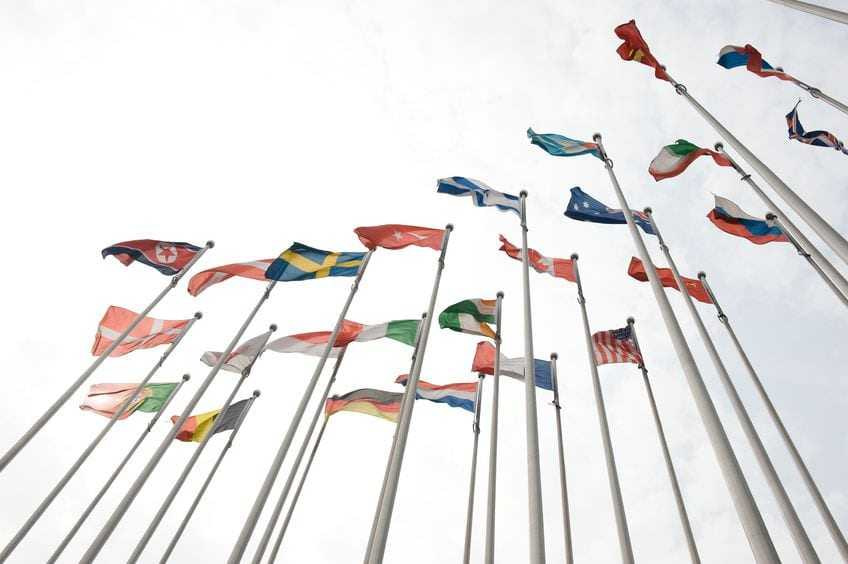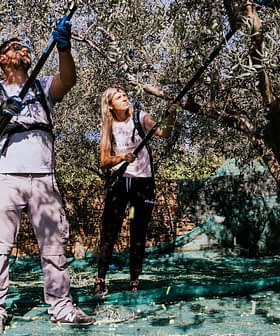
The importance of addressing potential contaminates in olive oil — such as mineral oil — was one of the issues raised at this month’s meeting in Brussels of the European Commission’s Advisory group on Olives and Derived Products.
The meeting also discussed coming reforms to the sector in Europe; concerns over quality standards in the United States, Australia and Brazil; fears on trade liberalization with Tunisia; and discrepancies in the production totals declared by Italy.
Olive oil quality
According to a draft report on the meeting, held on June 4, another of the nine agenda items was the “state of play” on olive oil quality.
“The discussions were mainly about the chemical parameters, the idea being of increasing the element of safety and of identifying the best parameters in order to safeguard the quality. The Commission also mentioned that, as concerns olive oil blends a method for the detection of fraudulent activities is being prepared by the IOC.”
“The Commission intends also to undertake steps for the development of a research project ‘Detection of Addition of Extraneous Oils to Edible Olive Oils’” the draft report says.
Discussion also took place on the labeling and storage of the olive oils, sample taking methods, and the need of more information to be transmitted to the sector, the report also says, but it gives no further details.
Olive oil contaminants
The meeting was told of the importance of addressing the issue of contaminants.
“Mineral oils are one of the contaminants of olive oils that represent a multiple problem, as they can contaminate olive oil at time of production, during the process as well as after that, in bottling or even during the transportation” the report says.
“The Commission informed that there are no maximum levels for mineral oil in olive oils. There was only a maximum residues level for sunflower oil from Ukraine, which was an incidence level. Following this incident, an evaluation of the problem was carried out and in the following days after this meeting the EFSA opinion on mineral oils would be published. The discussions will start in September to establish whether a maximum level for mineral oils in food needs to be adopted.”
Olive oil market
Producer representatives gave the meeting updates on their latest forecasts.
“In Spain the next campaign doesn’t look very good so far as there are lower quantities of rain than in the previous year. Therefore, the production is expected to be about 50 percent of the one of the previous year” the report says.
“There is an increase of imports as well as of exports, while the consumption in Spain is stable (although a slight increase could be observed in what concern the virgin olive oil). Concerning the prices of olive oils, a drop of approximately 20% was observed in 2011.”
“In Greece, the estimates are difficult to be made at the moment, as the season is still opened. However, the prices are very low and the measures announced to reinforce the sector are rather contradictory.”
Production and consumption are stable in France, where a small increase in output is expected for 2012/2013, and Portugal faces a slight drop in production due to low levels of rain and domestic consumption there “is going down because of the economic crisis.”
The report says that the EC presented its statistical documents regrouping the national data declared by EU members states.
“As regards Italy, there was a discussion as to the difference between the quantity of production declared by producers (480,000 tons) and the quantity stated by the member state (397,000 tons)” the report observes.
Olive oil trade with the US, Australia, Brazil, Tunisia and Morocco
The International Olive Council provided an update on the initiatives of the US, Australia and Brazil concerning the quality of olive oils “and the resulting problems for exports in those countries.”
“A representative of the industry updated on the new rules in Brazil, mentioning that they could be an obstacle for the foreign producers that would like to go on the Brazilian market. The Brazilian government has agreed to accept imports of olive oils in the country only if these products have a certificate from an authorized laboratory.”
“Therefore, the Brazilian government is going to ask for a list of accredited laboratories to test the olive oil.
“The Commission (EC) commented on this topic and specified that for the time being this issue was followed closely and cautiously by the Commission” the report says.
Under a separate agenda item on EU trade liberalization with Tunisia and Morocco, some sector members expressed fears about the impact of “opening doors for the outside producers…especially since the sector (is) going through a difficult period.”
Changes to EC funds for promotion
The EC outlined reform proposals aimed at “at a more appealing and assertive promotion policy, simpler management, higher European added value and greater synergy between the different promotion instruments.”
“A representative of the workers pointed out that the communication campaigns concerning the olive oils had to be carried out at a multi-national level so that different campaigns with the same objective wouldn’t be put in place by different countries.
“However, a representative of the producers underlined that those multi-country programs might cause some problems as the countries that should work together have different views and approaches.
“The Commission pointed out that the reform will encourage multinational management that creates synergies between/among EU countries.”
EC Advisory Groups
The Advisory Group on Olives and Derived Products usually meets every June and November. The EC advises that opinions expressed by the working group represent the points of view of industry stakeholders and cannot be attributed to the EC.








